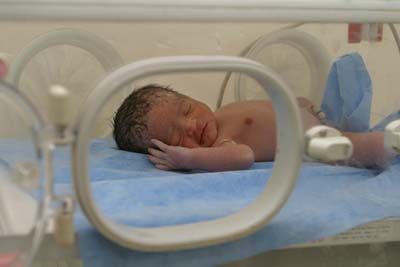One out of every twelve babies in the United States is born with a low birth weight. A baby is diagnosed with a low birth weight if they are born weighing less than 5 pounds 8 ounces.
Low birth weight is primarily caused by one of several reasons:

Premature birth
A baby that is born prior to the 37th week are considered to be premature, and about 67 percent of all low birth weight babies are born prematurely. Babies with very low birth weights, of less than 3 pounds 5 ounces are at the greatest risk for associated health problems.
Mothers who have had a previous preterm baby, who is pregnant with multiples or has cervix or uterus abnormalities, are more at risk of having a preterm baby.
Fetal growth restriction
These babies may be born at or near full-term, but they are born underweight. They may be born smaller if their parents are smaller than average, or because something halted or slowed their growth while they were still in the uterus. Babies that are born both prematurely and who are growth-restricted are at the highest risk for health problems.
Fetal growth restrictions may be caused by birth defects, if the mother has high blood pressure, diabetes or other chronic health issues, if the mother smoked or used drugs or alcohol, if she had an infection while pregnant or if the mother didn’t gain enough weight while pregnant.
Advances in medical science have greatly reduced the occurrence of low birth weight as well as the number of babies dying from this condition. Still, a small number of babies born with a low birth weight develop learning problems, vision or hearing loss, mental retardation and cerebral palsy.